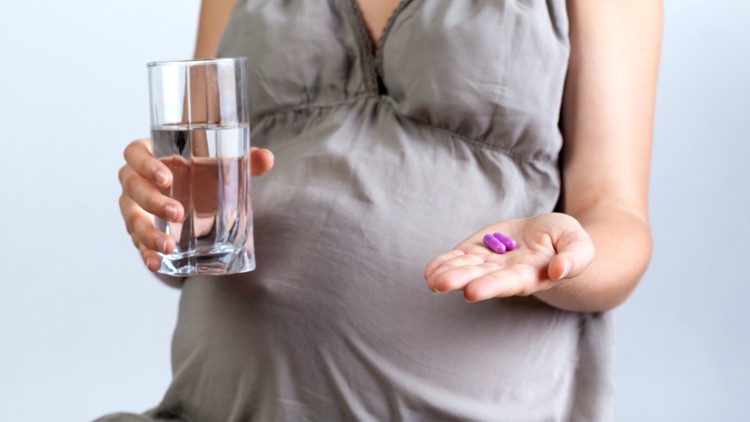Taking Vitamins, Nutrients and Supplements during Pregnancy

Are you passing through the most important phase of a woman’s life? Well motherhood is the period that woman love to enjoy the most and you should eat healthy diet during your pregnancy. Make sure you include both vitamins and minerals in your diet to stay strong and healthy. You should also take some supplements for folic acid during the pregnancy phase. You need to take 400 micrograms of folic acid daily before you conceive till you complete the 12 weeks.
This can lessen the risk of any complications of your baby’s development during the early weeks of pregnancy. You can contact a well woman clinic to get useful advice during pregnancy and stay protected.
Table of Contents
ToggleWhere you can get pregnancy supplements
They are available at different pharmacies and supermarkets or a private GP may prescribe them for you.
When you need folic acid from a multivitamin tablet, your tablet should not have renitol or vitamin A.
Take folic acid before as well as during pregnancy
You need to take at least 400 micrograms tablet of folic acid daily before you become pregnant and till you complete the time span of 12 weeks. Folic acid may prevent any birth defects which are called neural tube defects and spina bifida.
When you don’t take folic acid before conceiving, you can begin the moment you find you are pregnant. Make sure you include green vegetables in your diet that has folate, fat spreads and breakfast cereals along with folic acid in them.
Need to take high dose of folic acid
You should take a higher dose of folic acid When you have high chance of getting pregnant and being affected through neural tube defects. You will have to take it daily till you complete the period of 12 weeks of your pregnancy.
You might be having high chance when:
- you or the biological father of baby suffer from the detect of a neural tube
- you or the baby’s father has a family record of neural tube defects
- you have had an earlier pregnancy which was affected through a neural tube defect
- you have to take anti-epilepsy medicine
- you suffer from diabetes
- you take anti-retroviral medicine to fight HIV
Include Vitamin D during pregnancy
You have to take 10 micrograms of Vitamin D regularly that regulates the amount of phosphate and calcium in your body. These are required to keep your muscles, bones and teeth healthy and strong as the bodies produce Vitamin D when the skin gets exposed to sunlight.
Vitamin D is also there in certain foods that include:
- red meet
- eggs
- oily fish such as herring, salmon, sardines and mackerel
Also, Vitamin D can be added to your breakfast cereals, non-dairy milk alternatives and fat spreads.
When you cover your skin or have dark skin
You might be at greater risk of not having sufficient amount of Vitamin D when:
- you have dark skin
- you cover your skin when going out
Taking sufficient amount of iron in pregnancy
When your body doesn’t have sufficient iron, you will get tired very soon and even suffer from anaemia. Certain foods that contain iron include – green vegetables, lean meat, nuts and dried fruits. If you eat peanuts when pregnant, then this becomes a balanced diet for your need.
Add Vitamin C with to you diat when pregnant
Vitamin C will keep the cells protected and keep them healthy. It is usually present in various vegetables and fruits and a well-balanced diet will give you all the Vitamin C needed by your body.
Some sources of Vitamin C include:
- strawberries
- oranges and orange juice
- blackcurrants
- brussels sprouts
- red and green peppers
- potatoes
- broccoli
Presence of Calcium in pregnancy
Calcium is extremely necessary for making your baby’s teeth and bones.
Some sources of calcium are:
- bread and any foods made from fortified flour
- milk, yoghurt and cheese
- green leafy vegetables like curly kale, watercress or rocket
- soya drinks that have added amount of calcium
- tofu
- fish where bones are eaten such as pilchards and sardines
Vegetarian and eating special foods during pregnancy
Eating a well-balanced vegetarian diet has to include sufficient nutrients for you as well as your baby at the time of pregnancy. But you might find it really difficult to get sufficient Vitamin B12 and iron.
If you are a vegetarian and eat a restricted diet, then you should talk to your private GP at the time of pregnancy. You may ask him to refer you to a dietician for getting necessary advice and how you can get all the nutrients for yourself and your baby during pregnancy.
Thus, it is advised that you book a private pregnancy blood test to confirm your pregnancy and take proper care of yourself as well as your baby.
Alice Christina, a seasoned health writer, combines her passion for wellness with a strong foundation in evidence-based research. She crafts insightful content that empowers readers to make informed health decisions. Alice's expertise shines through her concise and reliable health articles.
Recommended For You
Spread the love Sexual health is an essential aspect of personal well-being. If you’re based in London and need STI
Spread the love In today’s fast-paced world, managing your health effectively is more important than ever – especially for those
Spread the love The EGFR blood test is an important way to check how well the kidneys are working. It



